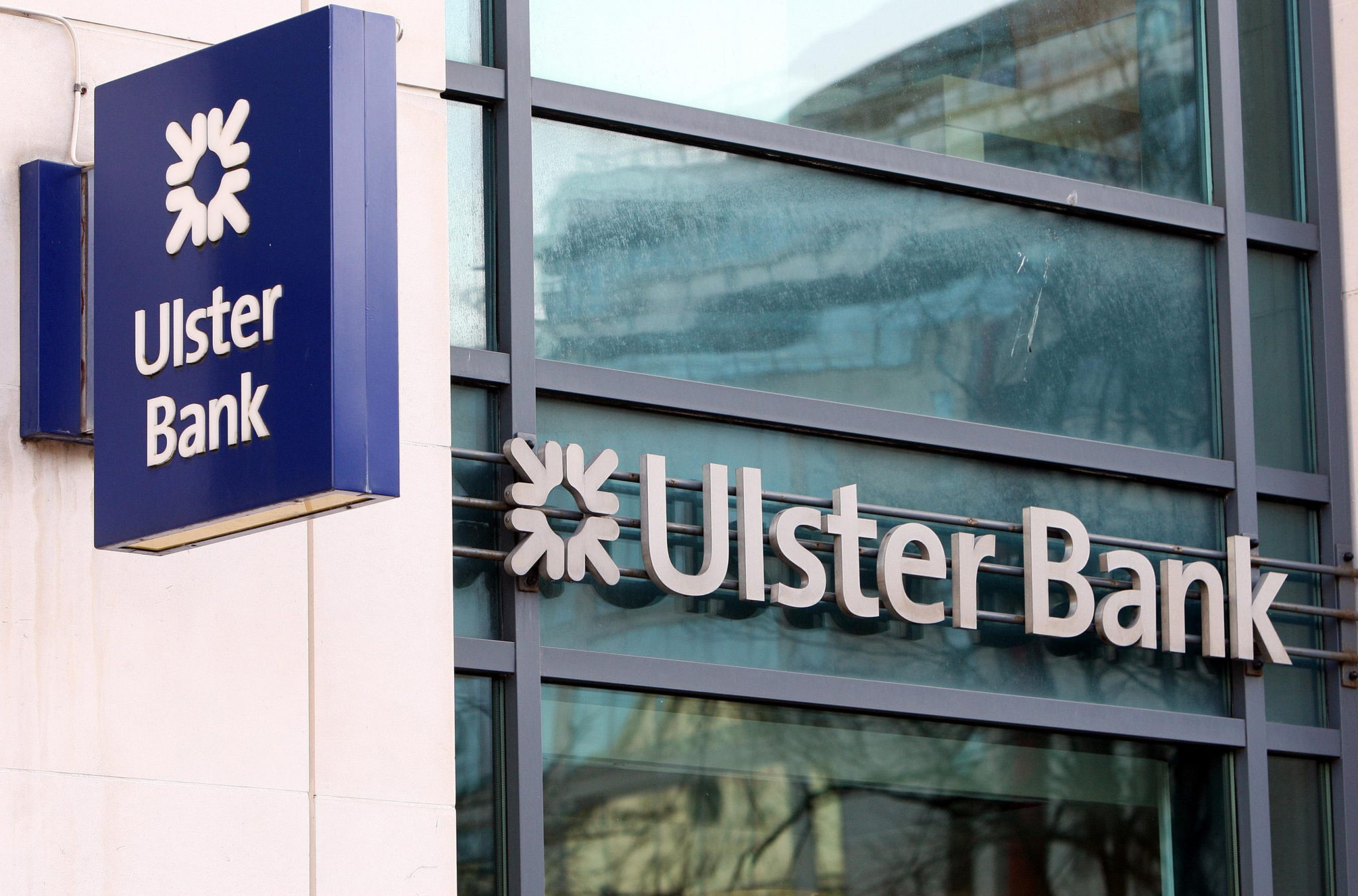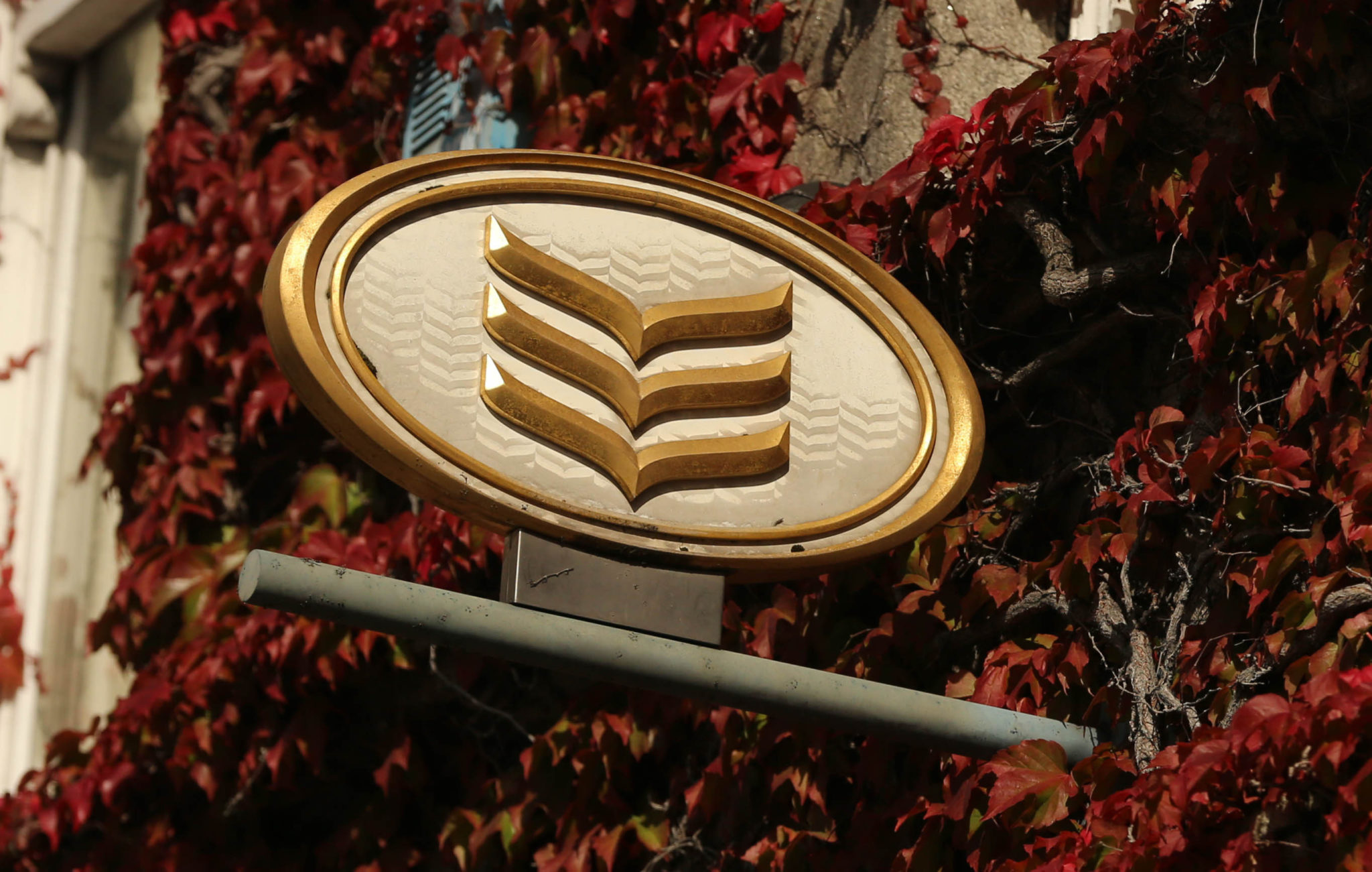Ireland must establish a new public banking system to ensure continued competition after Ulster Bank closes its doors.
The Green Party has launched a paper calling for a new regional system, supported by An Post and Credit Unions, to be established.
The party said Ulster Bank’s decision to withdraw from the Irish market coupled with Bank of Ireland’s plan to close 88 branches around the country has undermined banking competition in the country.
On Newstalk Breakfast this morning, the party’s finance spokesperson Neasa Hourigan said public banks are the norm in Europe.
 A general view of the Ulster bank headquarters in Belfast | Image: Paul Faith/PA Archive/PA Images
A general view of the Ulster bank headquarters in Belfast | Image: Paul Faith/PA Archive/PA Images“We have a lot of them in Europe,” she said. “21 countries in Europe already have public banks and in places like Germany, it is the bank that people use most days; it is the thing that ordinary people would go in and out of.
“The [2019 Indicon] report found that there was no market failure in Ireland and no problem with competition so why spend the money on a public bank but of course, this week, we have realised there is market failure in Ireland.
“Two pillar banks offering their services is not really competition so I think it is time now to look at that issue again.”
Regional system
She said the plan would involve a system of regional banks.
“It would not be one bank,” she said.
“We would probably be talking about maybe six to eight banks in Ireland so would get a real regional spread. The idea is that each bank would cover its own region so the money would circulate within that region.
“We would need to map the country to make sure we are covering the right communities because the point of a public bank is that it is locked into its own regional area; that it is about shareholders and their benefit.
“What I said in the Dáil is that it would be a profit-making bank but it wouldn’t necessarily be a profit-maximising bank.
“That is what we are seeing at the moment is that the pillar banks we have feel they could make more money in other regions and other areas so they are leaving the Irish market.”
 The logo of the Bank of Ireland outside a branch in Dublin. Bank of Ireland chiefs are facing calls to explain themselves after failing to pay wages into the accounts of customers for the second time in as many months.
The logo of the Bank of Ireland outside a branch in Dublin. Bank of Ireland chiefs are facing calls to explain themselves after failing to pay wages into the accounts of customers for the second time in as many months.Deputy Hourigan noted that the plan would ensure small and medium enterprises (SMEs) continue to have access to credit at a local level.
“What changes the relationship for SMEs with credit – and it so important that they get access to credit – is whether they have a relationship with their local bank and their local branch and we are now losing branches throughout Ireland,” she said.
“Every single TD in the Dáil on Wednesday night was able to stand up and say the name of a village that was losing their branch.”
She said the current system is no longer servicing people’s needs, warning that the move to online banking has “thrown up an issue around financial inclusion.”
“We have heard that banking has changed and that is totally true, you know, you see people on Revolut and those kind of apps on their phone and they move money around very quickly and that is brilliant but there is a whole cohort of people who are excluded from that and it has a big impact on their lives,” she said.
She said there are many people, including those with disabilities, the elderly and people without access to broadband who still need access to brick and mortar banking services.









